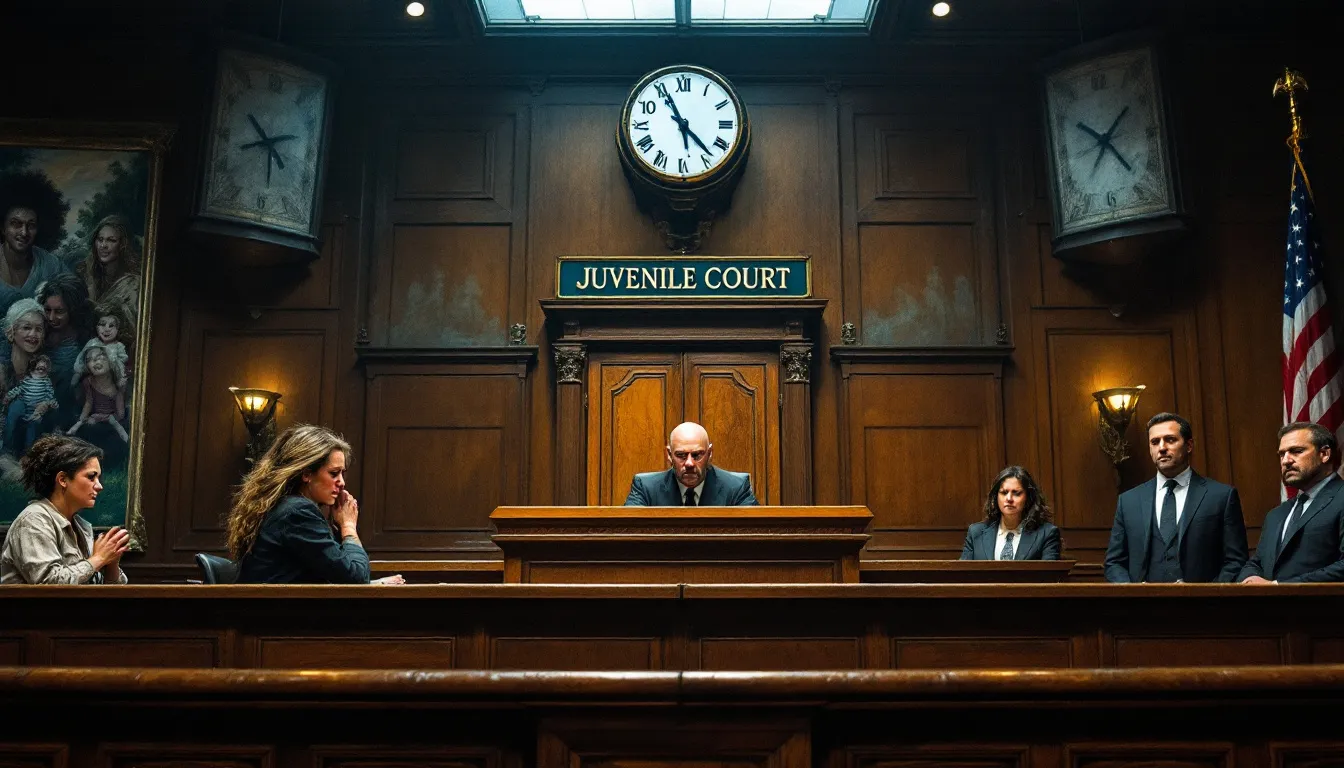
You’re standing in your kitchen, phone in hand, rereading a text from your ex that has your gut twisted in knots—your child just said something that makes you freeze, and suddenly you’re wondering if they’re really safe, and Proving Parental Unfitness in a Texas Custody Case is no longer just legal jargon, it’s your reality.
Maybe your ex has a history of poor decisions. Maybe there’s substance abuse, neglect, or something more subtle but just as damaging.
Whatever it is, you know something isn’t right—and now it’s time to figure out what you can do about it.
Short answer: To succeed in Proving Parental Unfitness in a Texas Custody Case, you must present credible, compelling evidence that the other parent’s behavior puts your child at risk—think abuse, neglect, addiction, or mental instability that disrupts safe parenting.
Why keep reading?
Because this isn’t just about winning a case—it’s about protecting your child. In this guide, we’ll break down exactly what qualifies as parental unfitness in Texas, how to gather the right kind of evidence, and what role experts like guardians ad litem and therapists play in the courtroom. We’ll even walk through what happens when false accusations fly, what temporary custody looks like, and whether that “good parent gone off the rails” can ever turn things around. You’ve got questions, and this article has answers—delivered with a little wit, a lot of clarity, and zero legal fluff.
Key Takeaways
- Parental unfitness in Texas custody cases is defined by behaviors such as abuse, neglect, substance abuse, and abandonment, with various forms of evidence needed to substantiate claims.
- Texas custody decisions prioritize the ‘Best Interests of the Child’ standard, which considers factors like the child’s safety, emotional needs, and home stability during evaluations.
- Effective gathering and presentation of compelling evidence, including medical records, police reports, and witness testimony, is crucial for proving parental unfitness and influencing custody outcomes.
Understanding Parental Unfitness in Texas
At the Law Office of Bryan Fagan, PLLC, we understand that Proving Parental Unfitness in a Texas Custody Case can feel overwhelming—but Texas law provides a clear legal foundation. Under Texas Family Code § 153.131, courts presume that joint managing conservatorship is in a child’s best interest. However, that presumption is rebuttable if one parent presents a risk to the child’s physical or emotional well-being. Evidence of abuse, neglect, substance abuse, abandonment, or severe mental illness can overcome this presumption and lead the court to limit or deny that parent’s rights.
Texas Family Code § 263.307 outlines several risk factors that judges consider when assessing a parent’s ability to provide a safe and stable home. These include a history of violence, drug or alcohol addiction, lack of effort to maintain stability, and untreated mental illness that impacts parenting. Courts don’t just look at isolated incidents—they look for patterns. Repeated CPS reports, documented substance use, or exposing a child to dangerous situations can weigh heavily in a judge’s decision.
To succeed in Proving Parental Unfitness in a Texas Custody Case, parents need more than accusations—they need evidence. This may include medical or psychological records, police reports, testimony from teachers or therapists, and communication logs that demonstrate instability or harmful behavior. Courts evaluate whether the parent’s actions directly impact the child’s safety, development, or emotional health. If mental health issues are involved, the key factor is whether those issues impair the parent’s ability to care for the child.
If you’re in a situation where you believe the other parent is unfit, it’s critical to build your case strategically. For more insight into related issues, such as sibling custody dynamics, visit our blog on Common Challenges in Obtaining Custody of a Sibling. At the Law Office of Bryan Fagan, PLLC, we work with parents throughout Texas to ensure the court sees the full picture—because your child’s safety isn’t just important, it’s everything.

Best Interests of the Child Standard
t the Law Office of Bryan Fagan, PLLC, we know that Proving Parental Unfitness in a Texas Custody Case hinges on one central principle: the Best Interests of the Child standard. This guiding principle, established in Texas Family Code § 153.002, requires that every custody decision prioritize the child’s safety, emotional development, and overall well-being above all else. Whether you’re seeking full custody or trying to restrict an unfit parent’s access, the court’s focus remains fixed on what’s best for your child—not what’s most convenient for either parent.
Texas courts consider a wide range of factors when applying this standard. These include the child’s physical and emotional needs, the stability of each parent’s home, any history of abuse or neglect, the child’s current relationship with each parent, and even the child’s own wishes—especially if they are 12 or older. Courts may also rely on what’s known as the Holley factors, a list of detailed considerations first established in Holley v. Adams, which continue to guide judges in high-stakes custody matters.
When it comes to Proving Parental Unfitness in a Texas Custody Case, credible evidence—such as CPS records, medical evaluations, school reports, and police documentation—can significantly influence the outcome. For example, a documented history of substance abuse or a pattern of domestic violence can shift the court’s presumption toward limiting or denying a parent’s conservatorship rights. Judges also consider whether the parent has made efforts to improve, such as completing treatment or counseling, but the child’s best interest remains the final measure.
For a deeper dive into how Texas applies this widely used legal standard, visit our post on What Is the Most Widely Used Standard for Determining Custody in Texas?. At the Law Office of Bryan Fagan, PLLC, we help parents across Texas navigate the legal complexities of custody cases with one goal in mind: protecting your child’s future through strong evidence, smart strategy, and experienced advocacy.

Evidence for Proving Parental Unfitness
Before: Proving parental unfitness demands robust and compelling evidence. Various forms of documentation can substantiate claims of unfit At the Law Office of Bryan Fagan, PLLC, we know that Proving Parental Unfitness in a Texas Custody Case requires more than suspicion—it requires solid, admissible evidence. According to Texas Family Code § 153.131, the court presumes both parents should share custody unless one is proven to be unfit. That’s why building a case around clear documentation is critical to shifting that presumption and protecting your child’s safety and well-being.
To successfully challenge a parent’s fitness, courts expect a range of credible evidence. This can include medical and psychological records showing untreated mental illness or substance abuse, police reports that document criminal behavior, and Child Protective Services (CPS) records reflecting investigations of abuse or neglect. Each of these elements offers a unique lens into a parent’s capacity—or incapacity—to care for their child. When presented together, they create a full, compelling narrative that speaks to a pattern of harmful behavior.
In addition to official documentation, witness testimony and communication records often play a key role. Teachers, doctors, family friends, and even neighbors may provide critical insight into how a parent behaves behind closed doors. Text messages, voicemails, and emails can also reveal verbal abuse, neglectful conduct, or poor judgment that impacts the child’s welfare. Organized effectively, this evidence helps the court see beyond isolated incidents and into the broader picture of the parent’s decision-making and environment.
To better understand how specific behaviors—particularly by a mother—can influence custody outcomes, read our detailed breakdown in What Makes a Mother Unfit in the Eyes of the Court According to Texas Law?. At the Law Office of Bryan Fagan, PLLC, we guide parents through the difficult process of documenting and presenting the truth in court. Because when it comes to Proving Parental Unfitness in a Texas Custody Case, your child deserves nothing less than a safe, stable future.

Medical and Psychological Records
Medical and psychological documentation often serves as vital proof of a parent’s mental health status, which plays a significant role in custody determinations. For instance, records of mental health treatment can reveal ongoing issues such as depression, anxiety, or substance abuse that may impair a parent’s ability to care for their child. These records can also highlight instances of emotional abuse or neglect that could affect the child’s well-being.
Substance abuse issues are particularly concerning, as they can directly impact a child’s physical and emotional environment. Medical records documenting drug or alcohol abuse provide concrete evidence of a parent’s inability to provide a safe and stable home.
Additionally, psychological assessments can offer insights into a parent’s mental health and their capacity to meet the child’s needs. Presenting these records helps build a strong case that demonstrates the parent’s unfitness.
Police Reports and CPS Records
Police reports and CPS records are critical in proving parental unfitness during custody disputes. These reports provide formal documentation of incidents of neglect, abuse, or other harmful behaviors that may threaten a child’s welfare. For example, CPS investigations typically cover incidents of neglect or abuse, providing essential evidence that can heavily influence custody decisions.
Police reports can illustrate criminal activities or behavior, thus establishing a pattern of irresponsible conduct that can be detrimental to a child’s safety. Both CPS and police reports offer a formal record of concerning behaviors and incidents, helping to prove that a parent is unfit to safely care for their child.
Presenting these records in court substantiates claims of a parent unfit for custody and demonstrates the need for protective custody arrangements.
Witness Testimony and Communication Records
Testimony from witnesses and communication records can strengthen a case for proving parental unfitness. Witnesses, such as family members, neighbors, or teachers, can provide firsthand accounts of a parent’s behavior and its impact on the child. These statements can corroborate claims of unfit behavior and provide a more comprehensive view of the parent’s actions and decisions.
Communication records, such as emails or texts, can also serve as compelling evidence. These records can demonstrate patterns of concerning conduct, such as verbal abuse or neglectful behavior.
Presenting witness testimony and communication records builds a robust case highlighting the parent’s inability to provide a safe and nurturing environment.
Gathering and Presenting Evidence in Court
At the Law Office of Bryan Fagan, PLLC, we understand that Proving Parental Unfitness in a Texas Custody Case hinges on how effectively you gather and present evidence in court. According to Texas Family Code § 153.131, courts are required to appoint parents as joint managing conservators unless one parent is shown to be unfit. To rebut that presumption, you must come prepared with persuasive, well-documented evidence that clearly demonstrates the other parent poses a risk to the child’s physical or emotional well-being.
Start by documenting incidents of concern as early as possible. Keep detailed notes of neglect, abuse, substance abuse, or unsafe living conditions. Even subtle patterns—like emotional withdrawal, academic struggles, or changes in your child’s behavior after visits—can be meaningful when linked to parenting time. These observations can provide a compelling narrative of the child’s experience over time and give judges insight into the long-term impact of the unfit parent’s behavior.
Once your evidence is collected, organization becomes key. Medical and psychological evaluations, police reports, CPS records, and witness testimony should all be compiled in a clear and easy-to-reference format. Judges expect claims of unfitness to be supported by solid facts—not just emotions. Presenting your evidence in a way that tells a story and aligns with the statutory requirements of the Texas Family Code gives your case credibility and structure.
If you’re seeking sole custody based on unfitness, it’s important to know that the court must be convinced this arrangement is in the child’s best interest. For more information on that process, visit Sole Custody in Texas: What You Need to Know. At the Law Office of Bryan Fagan, PLLC, we guide clients step-by-step through building strong, evidence-backed cases—because when it comes to Proving Parental Unfitness in a Texas Custody Case, preparation is everything.

Legal Outcomes of Proving Parental Unfitness
At the Law Office of Bryan Fagan, PLLC, we know that Proving Parental Unfitness in a Texas Custody Case can significantly shape the legal outcomes that follow—especially when a child’s safety is at risk. Under Texas Family Code § 153.004, if a parent has a history of family violence, abuse, or neglect, the court is empowered to restrict or deny that parent’s access to the child. One of the most common court-ordered solutions in these cases is supervised visitation, where the unfit parent may only see the child under the watchful eye of a neutral third party. This ensures the child’s emotional and physical well-being remains protected while preserving some degree of parent-child interaction.
In more serious situations—particularly when there is sustained abuse, repeated CPS involvement, or evidence of criminal behavior—the court may grant sole managing conservatorship to the other parent, effectively removing decision-making authority from the unfit parent. This is outlined in Texas Family Code § 153.005, which allows the court to determine conservatorship arrangements that best serve the child’s needs. In the most extreme cases, where a parent poses a continuing danger to the child, the court may even move to terminate parental rights under Texas Family Code § 161.001, severing the legal relationship entirely to protect the child from further harm.
For parents facing these situations, legal strategy matters. An experienced attorney can make a significant difference by presenting well-organized evidence, leveraging the right legal standards, and advocating for protective orders or conservatorship terms that reflect the child’s best interests. Whether you’re seeking sole custody or needing to restrict contact for safety reasons, our team builds strong, evidence-based arguments that align with the most recent updates to Texas custody law.
To learn more about how protective orders and custody arrangements intersect in these cases, we invite you to read Understanding Protective Orders and Custody in Texas: What You Need to Know. At the Law Office of Bryan Fagan, PLLC, we’re here to guide you through every step of Proving Parental Unfitness in a Texas Custody Case—because your child’s safety is our top priority.

Practical Advice for Concerned Parents
Parents concerned about their child’s safety should document incidents of behavior that may indicate parental unfitness. Keeping detailed records of any signs of child neglect, abuse, or other harmful behaviors can provide valuable evidence in a custody case.
Working with child psychologists can also provide expert insights and evaluations that support your case regarding parental fitness. Partnering with a qualified family law attorney is essential for ensuring your documentation meets legal standards and effectively supports your case.
An attorney can guide you through the legal process, helping you gather and present evidence in a way that convincingly demonstrates the other parent’s unfitness. Taking these steps helps protect your child’s welfare and secure a safe and stable home environment.
Importance of Experienced Legal Representation
Navigating the complexities of proving parental unfitness in a Texas custody case requires experienced legal representation. Attorneys advocate for the best interests of children while considering the financial situations of both parents. They can help you gather and present compelling evidence, ensuring that your case is strong and persuasive.
Real-life case studies emphasize the necessity of involving legal representation to navigate custody battles effectively. An experienced child custody lawyer can provide the expertise and support needed to achieve a favorable outcome in your case. Working with a skilled attorney ensures your child’s welfare is prioritized and that the court makes decisions reflecting their best interests.
Real-Life Examples and Case Studies
Real-life examples and case studies can provide valuable insights into how Texas courts handle custody disputes, including a child custody case. One significant case is In Re C.J.C., which set a precedent by affirming that fit parents have a constitutional right to make decisions regarding their child’s welfare. In this case, the father successfully argued against a temporary custody order granted to the mother’s fiancé, emphasizing his constitutional parental rights.
The outcome of In Re C.J.C. reinforces that courts prioritize the rights of fit parents over non-parents in custody disputes. By examining such cases, parents can better understand the legal landscape and the importance of proving parental fitness.
These examples highlight the critical role of evidence and legal representation in achieving favorable custody outcomes.
Conclusion:
At the end of the day, Proving Parental Unfitness in a Texas Custody Case is about one thing: protecting your child’s safety and well-being. It’s not about revenge. It’s not about winning. It’s about making sure your child grows up in a stable, healthy environment—and that starts with the courage to speak up when something isn’t right.
If you’ve made it this far, you already know this process isn’t easy. But now, you also know it’s possible.
With the right evidence, the right legal guidance, and a clear focus on what’s best for your child, you can build a case that Texas courts will take seriously. And if the other parent truly is unfit, the court has the tools to act—whether that means supervised visits, sole custody, or in the most serious cases, termination of parental rights.
So stay organized. Stay focused. And most importantly, stay committed to your child’s future. Because when it comes to proving parental unfitness, the real victory isn’t just a court order—it’s peace of mind for you, and a safer tomorrow for your child.




